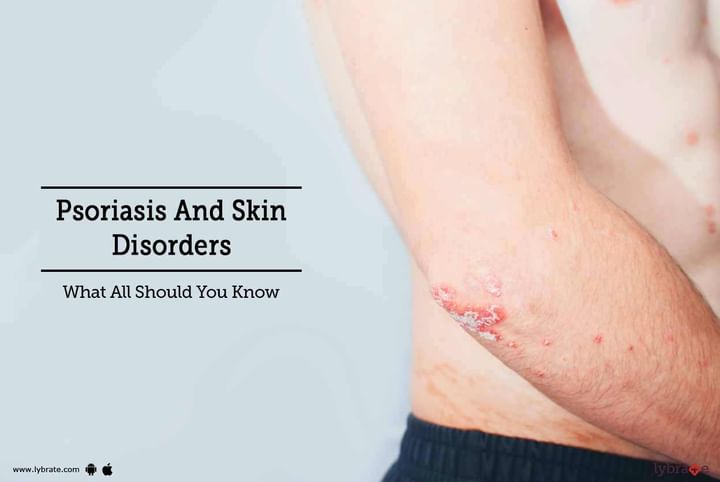Psoriasis And Skin Disorders - What All Should You Know
The term ‘skin disorders’ is used to describe different skin problems- from widespread rashes to red small bumps on certain portions of the skin. While some conditions can be harmless but unsightly, others may be infectious and even life-threatening in rare cases.
Some skin conditions have a genetic component, while others may result from allergic reactions. Allergic skin problems occur when certain allergens stimulate an immune response such as itching or redness. Bacteria, fungi, viruses can also lead to skin problems. The most common types of skin problems are psoriasis, eczema, acne, rosacea, warts etc. Let’s take a closer look at these disorders-
- Psoriasis- This is an autoimmune chronic skin condition which causes a rapid increase in the number of skin cells. Due to this rapid accumulation of cells, the surface of your skin becomes dry and flaky. The white scales are usually seen in the joints of your knees and elbows. You will most likely notice redness and inflammation around the scales.
- Eczema- Eczema is a medical condition that causes your skin to turn red and become inflamed and itchy. Eczema occurs in many forms, the most common among which is Atopic dermatitis. This condition begins usually in childhood, and gradually fades away or becomes milder as you age.
- Acne- This is perhaps the most common skin problem particularly prevalent between the ages of 15 and 35. Almost every other person develops small raised bumps known as acne breakouts due to infected or blocked hair follicles. When the skin pores become clogged due to excess oil secretion or accumulation of dirt and dead skin cells, acne can appear anywhere in the skin. Most commonly, these are noticed on the face- cheeks, chin or the nose.
- Rosacea- Rosacea is often mistaken as acne because it induces acne-like inflammatory symptoms. But this particular skin condition can occur due to a combination of genetic and environmental factors. Rosacea produces red, pus-filled small bumps on the skin, and usually affects fair-skinned middle-aged women. Visibly broken blood vessels, swollen skin, itchy dry eyes, rough patches on the skin- all these signs indicate you may have rosacea.
- Warts- These are slightly raised bumps or patches on the upper layer of your skin caused by the Human Papillomavirus (HPV) infection. Warts come in different shapes and sizes and can occur in any part of your body- hands, palms, feet, knees, or face.
Role of Ayurveda in curing skin disorders-
The Ayurveda school of treatment aims to restore your body’s doshic balance- kapha, vata and pitta. Treatment methods include self-care practices such as a balanced lifestyle, healthy diet, exercise and meditation. There are several Ayurvedic therapies including Abhyanga and Panchakarma that are designed to promote healthy skin.
- The Panchakarma vidhi uses medicated herbs, natural ingredients like rice, sand, medicated powder on your body to soothe your senses and flush out the toxins from your body. Once your body is detoxified, your skin feels rejuvenated and nourished.
- Essential rosemary oil and olive oil act as excellent moisturizers, especially for dry flaky skin resulting from psoriasis.
- Ashwagandha, one of the most essential, powerful herbs packed with anti-inflammatory properties, helps remove rosacea puss. To fetch best results, apply or drink extracts of this wonder herb every alternate day.
- Fenugreek seeds, or what is more commonly known as ‘methi’, are rich in essential vitamins like C and K, folic acid and iron. This medicinal plant helps remove dry red patches on the skin. It also prevents the formation of rosacea puss and helps reduce itching.
Skin problems can be mild or severe. Sometimes a conventional treatment method that may work for one condition, may not work well for the other. Ayurveda is a holistic approach to treatment and uses natural ingredients to cure the root cause behind the apparent condition. In case you have a concern or query you can always consult an expert & get answers to your questions!



+1.svg)
